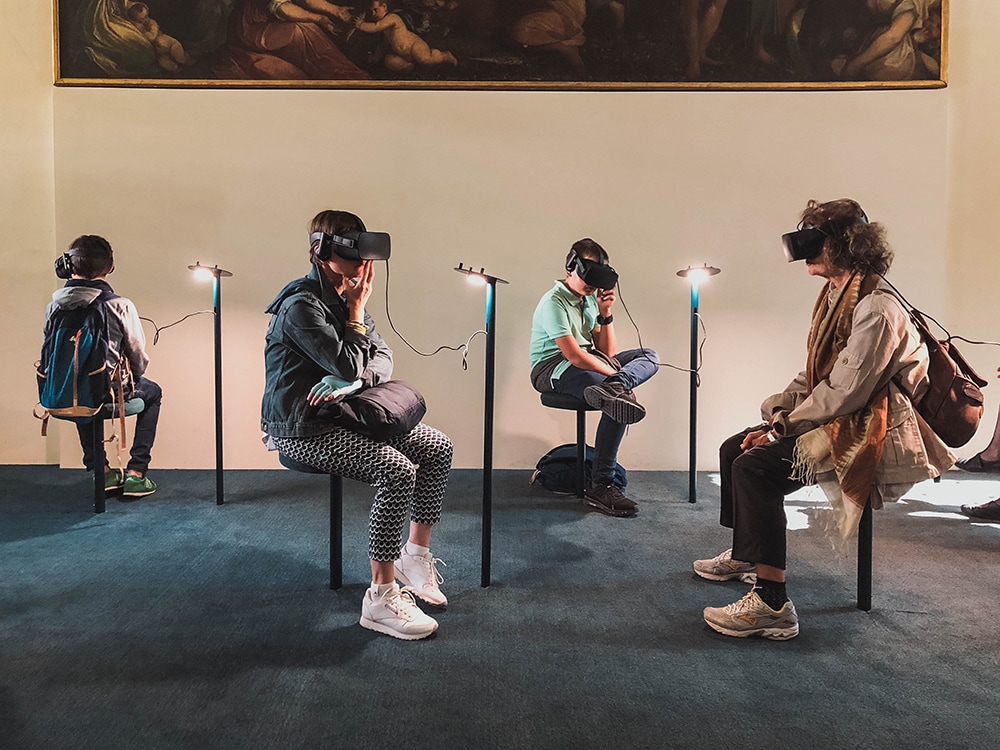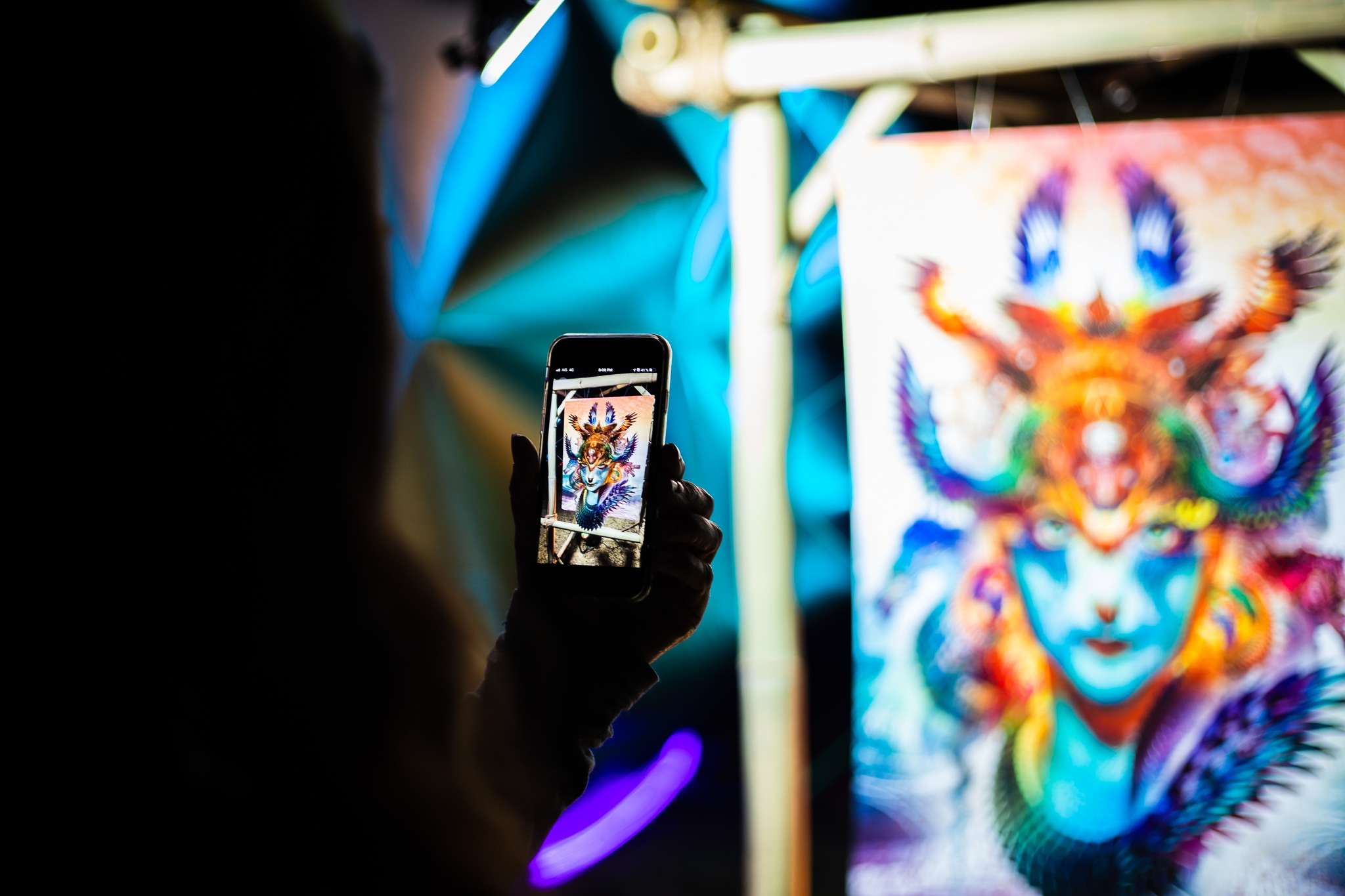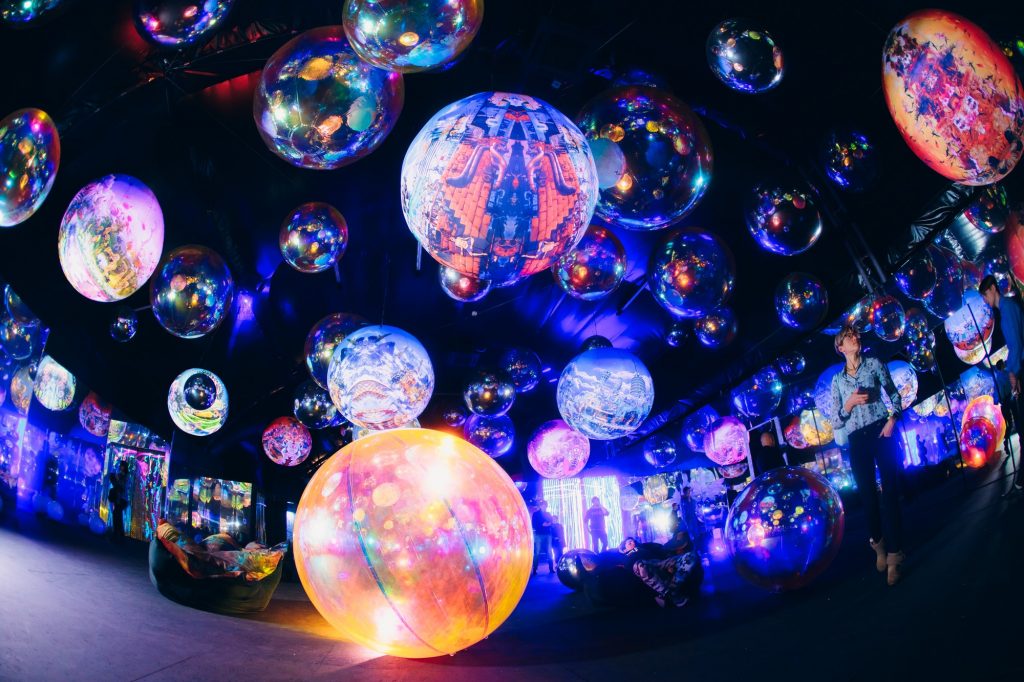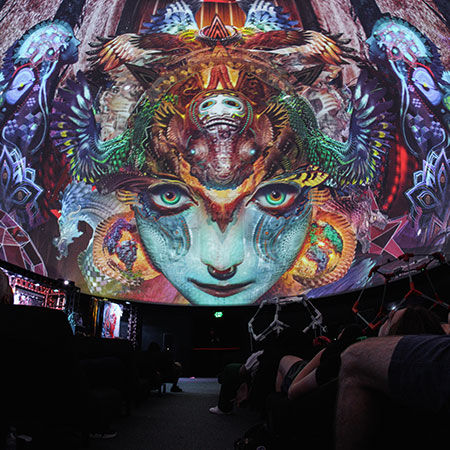For years, the power of a museum or exhibition has been, at least partly, in its ability to inspire and educate the audience. By being able to bring its audience front and centre to the topic of discussion, it was easy to show them exactly what they are learning about. However, today, with immersive technology such as Augmented Reality, Virtual Reality, projection installations, projection domes, and even holographic tours, we have access to more in-depth, immersive opportunities than ever before.
Immersive technology can go a long way to ensuring that a museum or exhibition event can really capture the audience. Today, with the power of such hardware, it is easier for us to show people rather than have them read, view, or hear about the subject matter.

Increasing audience size and audience interaction
A major failing in many traditional museum and exhibition events is a failure to engage with the audience. That’s why immersive technology like AR or VR can be so useful. It allows the individual to stand within the subject matter at hand. For example, a workshop in a museum to do with dinosaurs could become far more immersive, giving people a much more lifelike representation of the size of, say, a Stegosaurus.

Immersive education
Museums and technology are becoming more and more entwined, and it is easy to see why. Instead of being seen as outdated and stodgy, immersive solutions help to modernize the educational experience. These projects are gaining massive plaudits around the world, using a product that can be immersive and educational all at once.
This has been a long time coming, with the use of computer art in exhibition and museum events since the 1960s. With such educational activities in need of modernizing to keep a more digitally-inspired audience interested, these technological solutions could pave the way to solving a problem of interest from the audience.
By allowing us to bring people into contact with the stars (virtually), to feel ever-closer to historical figures, and to even stand in among prehistoric creatures, museums and exhibitions can do much to inspire their audience today.

With tools like VR headsets, immersive screens, projection domes, and holograms installations, there is an opportunity to tell a story fuller and clearer than ever before.
And with various experts in immersive technology creating the kind of scenes that can inspire their audience, it really is easy to see just how vast the potential for this both now and in the future will be.


